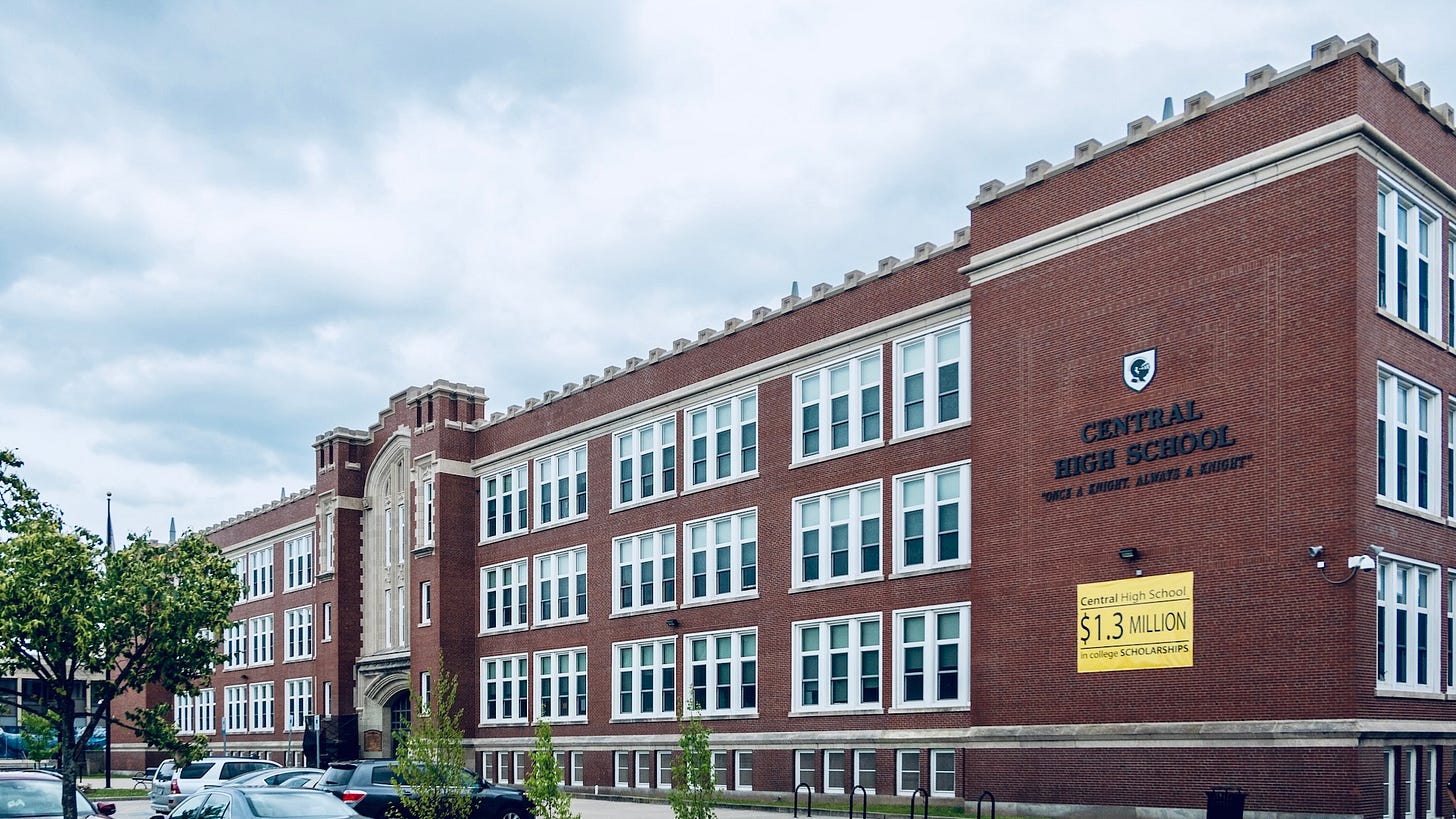SEEDS UNPLANTED - The Recent History of Education Funding in Rhode Island
“For decades, Rhode Island’s policymakers have operated under the myth that cutting taxes for businesses and high earners would spur economic growth. Yet the data is clear..."
Here in Rhode Island, education funding is virtually always in the news. Providence and Central Falls no longer run their own schools, and this spring, West Warwick is looking at layoffs, and Cranston and Warwick are predicting tight budgets and cutbacks. East Greenwich is looking at a cut of almost a million dollars in state aid. And this is all before the impending cuts at the United States Department of Education go into effect. Are headlines like these just a routine sign of spring? How did it get this way?
A history released today offers an explanation, a look at the evolution of state fund ing for elementary and secondary education over the past four decades. “Seeds Unplanted: The Recent History of Education Funding in Rhode Island” was written by James Hardy and Mikael Oberlin, seniors at Brown University. To compile their history, Hardy and Oberlin relied not only on contemporaneous budget reports and news articles, but also interviews with people who played a role in forming the policy landscape of today: State Representatives, Senators, and other public officials, as well as lawyers, activists, and lobbyists, cooperated to help tell this story. Tom Sgouros, a member of the research faculty at Brown’s Data Science Institute, oversaw the project.
“Any serious attempt at resolving these problems and providing students with the support they deserve must reckon with this history and understand the opportunities we have missed.”
The report picks up the story in the 1980s. At that time, the DiPrete administration was funding 50% of local education expenses, and had committed to bringing the level up to 60%, in an effort to reduce reliance on local property taxes. The 1991 bank crisis put an end to that goal, and Governor Sundlun’s dramatic cuts in state education aid sharply reduced the available funds—and the ambition to do better. A 1994 suit by three urban school districts argued that the inequities that result from the state’s reliance on property tax for local schools was unconstitutional. The Superior Court agreed in 1994, but the Supreme Court overturned that decision in 1995, ruling that there is no constitutional right to equity in education in Rhode Island.
The Hardy/Oberlin report traces the history of local education funding since then, through the resulting decay of the funding formula in place at the time of the decision, through the seemingly endless commissions and studies about how to reform the system, to the establishment of the new funding formula in 2010, and then to today. Along the way, the authors note that the question evolved from one of adequacy to fairness among school districts. Hardy pointed out, “The new funding formula was intended primarily to be a fairer way to divide the existing pie. It made no reference to whether or not the pie was adequate.”
A history of education funding over this period would not be complete without an accounting of all the state tax cuts enacted along the way. Faced with a financial crisis, Governor Sundlun refused to consider taxes as a solution, setting the stage for the austerity Rhode Island has enjoyed ever since. After him, Governors Almond and Carcieri enthusiastically cut state taxes, even in the face of increased school and local expenses, and inequity in the schools grew worse. Those cuts cost the state budget hundreds of millions of dollars each year, to this day.
“If we want a thriving economy, we must stop chasing arbitrary tax rankings and start investing in all Rhode Islanders, not just the wealthy few.”
“For decades, Rhode Island’s policymakers have operated under the myth that cutting taxes for businesses and high earners would spur economic growth. Yet the data is clear—these cuts have failed to deliver and have only starved our schools and widened inequality,” said Oberlin. “If we want a thriving economy, we must stop chasing arbitrary tax rankings and start investing in all Rhode Islanders, not just the wealthy few.”
A 1993 lawsuit in Massachusetts made substantially the same argument as the 1994 Rhode Island suit, but it succeeded. As a result, Massachusetts did the hard work of reforming the way the state funds its schools and has enjoyed the benefits ever since. As the Hardy/Oberlin history shows, Rhode Island lurched from one short-term fix to another, letting the inequities pile up, always putting off the hard decisions, and always finding just enough more funding to scrape through another year.
“The fight we see today between PPSD and RIDE, the cutbacks in Pawtucket and West Warwick, these are outcomes of past politicians thinking in the short term and dodging the issue of bringing equity and adequacy to school funding,” said Hardy. “Any serious attempt at resolving these problems and providing students with the support they deserve must reckon with this history and understand the opportunities we have missed.”
Find the report at https://sgouros.com/finance/seeds-unplanted.pdf.




As an activist constanty reminding Rhode Islanders that low taxes on the rich is bad for the economy i truly appreciate the findings of this report. Until politicians break the hold of the myth that low taxes on the rich are good for the economy RI will never realy move forward asd we will continue to underfund everything.
I found the story informative and enlightening. Thank you.